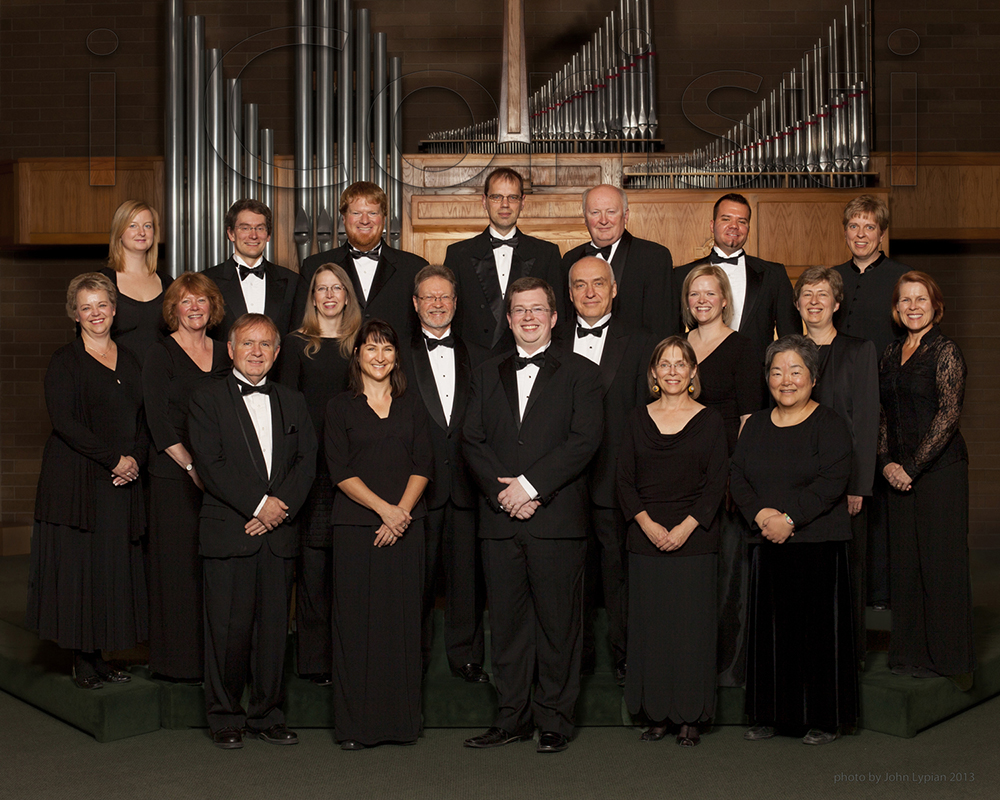
Photo credit: John Lypian
The power of the human voice and the ability to shape complex music was what drew Rob Curtis to conducting, and to choir. The recent graduate (he received his Doctor of Music degree in choral conducting on November 17) began as a piano major working toward a BMus degree. But in his third year he took an "Introduction to Conducting" course as an option. It changed his life. He not only fell in love with choral conducting, he also discovered a talent for it. After finishing his bachelor's, he went straight into a master's degree focusing on his new passion, and followed that with a doctorate.
"I love working with the human voice," says Curtis. "There's something very intimate and direct about hearing a choir sing. Everyone has a voice, but not everyone plays an instrument, so we can all relate."
Once he tapped into the power of this art form, it was full speed ahead. Curtis now conducts three choirs and sings in one. One of the choirs he conducts is the University of Alberta Concert Choir - an ensemble of singers from across campus in which students can participate for credit. His work with the concert choir was recognized in 2014 with a Graduate Student Teaching Award. "It was a huge honour," says Curtis. "Hearing from students and colleagues [about] the effect my teaching had on them was a really wonderful thing."
He also conducts i Coristi Chamber Choir, an award-winning adult community choir of 28 singers. And with his wife, he conducts the choir at St. Thomas Anglican Church in Sherwood Park. In between all of these commitments, he sings with Pro Coro Canada, the professional chamber choir and resident ensemble at Edmonton's Francis Winspear Centre for Music.
Curtis is currently preparing i Coristi for an upcoming performance on November 28 at Holy Trinity Anglican Church. "Isles of Song" will be an evening of music from the British Isles. The first half of the show will feature the work of some of the big names in British choral music in the 20th and 21st centuries. The second half will showcase music of the Celtic folk tradition and will include the Canadian première of a piece called "Irish Mass" by Gilles Mathieu, for choir, Celtic instruments and strings.
Before every concert, i Coristi reaches out and offers a gift to the community - a free performance at a retirement home. The night before this particular concert, i Coristi will perform "Isles of Song" for some music-loving seniors. "It's usually a smaller audience but they are so receptive and enthusiastic," says Curtis.
In fact, those performances are only a small part of his work in the community. Curtis often adjudicates at local music festivals and gives workshops for school choirs of all ages, as well as workshops for adult community choirs in Edmonton and Spruce Grove.
While juggling his many choir commitments (he was also assistant conductor for the Richard Eaton Singers from 2010 to 2013), Curtis also managed to complete his thesis on elements of place in the music of Malcolm Forsyth. Curtis first encountered the work of Forsyth, a former U of A professor and composer, while singing with the U of A Concert Choir in 2002. "His music has lots of humour and personality and it piqued my interest," explains Curtis, who got to know the composer personally as an undergrad, and through playing in the University Symphony Orchestra when Forsyth was conductor.
With his freshly minted DMus degree in hand, Curtis will now set his sights on a full-time teaching position at a university. And he has a new perspective on the value of his U of A fine arts degrees. "Professionally, the training I've received here has been absolutely top notch, and the environment is excellent for a musician," he says, citing the opportunity to work with Len Ratzlaff and Debbi Cairns. "And Edmonton is a fantastic choral community. I have such talented colleagues here and we have lots of opportunities to learn from each other. Through choral music, I have learned teamwork, communication, critical thinking and problem solving. It has helped me develop confidence while I developed as a scholar."